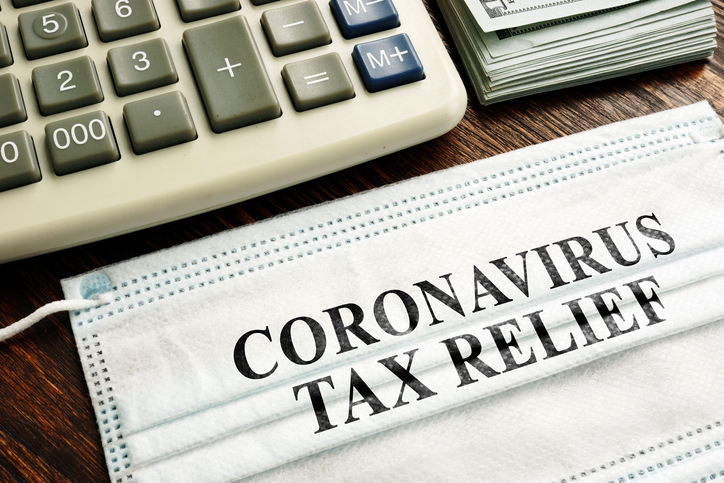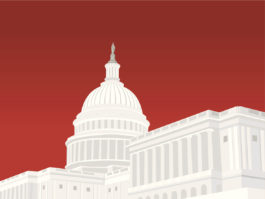On Saturday, March 6th, The American Rescue Plan Act of 2021 (ARP) made it through a Senate vote (50–49) and was sent back to the House, which is expected to vote on the legislation on Tuesday, March 8th. If the ARP passes the House without further amendments, the $1.9 trillion coronavirus relief bill will move to be signed into law by President Joe Biden.
The ARP upholds most provisions proposed in the original House bill, such as funding for state, local, and Tribal governments; K-12 schools and colleges and universities; and COVID-19 testing and support of the vaccine rollout. The Senate amended some of the legislation originally proposed by the House by, among other things, removing the provision to raise the federal minimum wage to $15 per hour and excluding funding for a bridge to Canada in upstate New York over the St. Lawrence seaway and the extension of a railway system near San Francisco. Here are some of the relief measures taxpayers can expect if the ARP is signed into law.
Recovery Rebate Credits
The ARP provides a $1,400 recovery rebate credit for single taxpayers, a $2,800 recovery rebate credit for married taxpayers filing jointly, and a $1,400 recovery rebate credit for each dependent for 2021. The credit is subject to phase-out limitations based on adjusted gross income:
- For single taxpayers, the credit begins to phase out at AGI of $75,000 and completely phases out at AGI of $80,000.
- For married taxpayers filing jointly, the credit begins to phase out at AGI of $150,000 and completely phases out at AGI of $160,000.
- For heads of household, the credit begins to phase out at an AGI of $112,500 and completely phases out at an AGI of $120,000.
Federal Enhanced Unemployment Insurance Benefits
The ARP provides $300 a week in federal unemployment benefits through September 6, 2021, and makes the first $10,200 in unemployment benefits tax-free in 2020 for households making less than $150,000 per year.
Student Loan Forgiveness
The ARP includes a provision to make student loan forgiveness passed between December 31, 2020, and January 1, 2026, tax-free.
Family and Sick Leave Credits
The ARP extends the credits for sick and family leave originally enacted by the Families First Coronavirus Response Act (FFCRA) to September 30, 2021, and increases the limit on the credit for paid family leave to $12,000. Paid leave credits will be allowed for leave due to a COVID-19 vaccination. Eligibility extends to 501(c)(1) governmental organizations.
Paycheck Protection Program (PPP)
The ARP infuses $7.25 billion in new funds into the PPP. The program is still set to end at the end of March. The legislation expands eligibility to include more nonprofit organizations.
Employee Retention Credit (ERC)
The ARP extends the ERC through the end of 2021 and allows employers to use the ERC against the Sec. 3111(b) Medicare tax.
Economic Injury Disaster Loan (EIDL) Grants
The ARP infuses the EIDL grant program with $15 billion to provide eligible small businesses in low-income communities with up to $10,000 in grants. The program will roll out in a series of windows. The first window will be reserved for small businesses with 300 or fewer employees with a loss of gross receipts of more than 30% during an eight-week period between March 2, 2020, and Dec. 31, 2021, compared with an eight-week period prior to March 2, 2020. The second window is for businesses with fewer than ten employees with a loss of gross receipts of 50%, and the third window is for businesses with fewer than ten employees with a loss in gross receipts of 30-50%. The legislation provides that targeted EIDL grants received from the SBA do not get included in gross income and that excluding these grants from gross income will not result in denial of deductions, a reduction in tax attributes, or denial of basis increase.
Contact ARB
We expect the terms and reach of this legislation to continue to become more apparent over the coming days and weeks. ARB is dedicated to updating our clients and community as legislation and other implications of the COVID-19 pandemic continue to unfold. For additional considerations and questions on this information, contact me today.
For more information on this topic and many other COVID-related matters, visit our COVID-19 Financial Resource and Tax Center.
by Bart Haag, CPA

Bart Haag joined ARB in 1996 and has been a principal with the firm since 2005. His career focus is primarily in providing financial accounting, income tax planning, and business advisory services for clients in the automotive and motorcycle dealership industries and for closely-held businesses, many of which are family-owned.





